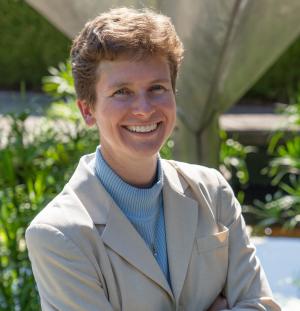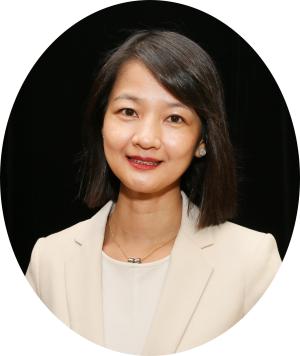Resources

A former student recently got in touch with me to catch up after a few years of silence. He said I was one of the few people who made him feel truly seen, and that’s what he needed right now. As we chatted, he asked about my Jan term backpacking with students in an Arizona canyon. When I described it to him, he replied, “That should called ‘Being in Awe 101!’ Actually, I think all of your classes should be titled that.” I like it. Being in Awe 101.He picked up on a particular element of my pedagogy that is always a goal but is especially potent in my outdoor courses: wonder. We know that children are great at this. They wander around the world enthralled, wondering at everything. We know as teachers that if we can only get students to wonder about something, then they can learn – that they learn much better if they are curious than when we tell them that they have to memorize this thing they find boring. We know the power of wonder in a classroom.Taking my students outside facilitates more wonder among them than I can generate in the classroom. I hear the question: Does making my students sit in the garden outside the English department building really make them wonder better about the reasons for the Council of Nicaea? Well, yes. When my students sit outside for class, they are generally more open. They feel like they can breathe and even, often, like they’re getting away with something. I’ve said as much before. That sense of freedom and of getting something past the authorities helps them drop their guard, be less armored about what they think is being asked or required of them in class. That openness allows the material to get past the bouncer in their brains. That openness is space for wonder.Sometimes quail run through the outdoor classroom and disrupt us in a way that makes us all laugh but also takes us out of “I’m a student and have to learn this thing my professor is saying” mode. Sometimes their internal bouncer gets wondering about the butterfly that floats near them and then is willing to wonder about the conversation happening in their group work. Even just noticing the colors of the flowers in the garden or the smell of the mulch is enough to cause that disruption. And once they wonder about one thing, they’re in a posture of wonder. Then, perhaps, they wonder about the discussion we’re having about the reading.We know we can inculcate wonder under the fluorescent lights, too. We associate with the Wabash Center because we care about creative ways to induce wonder. I only suggest that taking students outside can be a shortcut. Unless it’s raining. A good hike in the rain on a lengthy backpacking trip can still invoke wonder with the right attitude, but I admit that taking a normal class out in the rain will be more distracting than wonder-ful. Sometime I’ll tell you about the time I lost an entire class because the first day of rain that semester was in November and they didn’t know where our classroom was. Even that was the kind of disruption that calmed the internal bouncers.At one Wabash cohort workshop in Crawfordsville, I was excited that canoeing was an afternoon option because canoeing is maybe my favorite thing in the world. One of my cohort colleagues and I ended up in a canoe together. We had a lovely conversation at one point along the river about being awake to God. About that time a bald eagle soared overhead. We wondered together awhile. I watched my colleague – already a joyful, brilliant, fully alive person – become even more alive in her wonder. Months later she told me how she carried that moment of wonder back to her family and her world and the effects it had.The wilderness surprises us. It disrupts our “normal” with its “normal.” We are less able to pretend we’re in control when this happens, and I think this is why it is a place ripe for wonder. Our eyes are more open. They have to be, or we’ll miss the surprise. Or we’ll be surprised by something that feels more like an attack. We keep our eyes open outside and look closely at what’s around us. We see more clearly. This is the wonder.I suggest that as important as wonder is for learning, wonder is more important for being a decent human being among other human beings. It’s not enough to wonder in order to learn; we must also wonder about others in order to see one another clearly, in order to delight in one another. Wonder is the posture we need for awe to take root, and also delight. As we take our students outside to facilitate their wonder, they are practicing for more than the exam. We give them an experience of seeing deeply and of being deeply seen, and the wonder that produces will generate even more wonder. Perhaps then we’ll stand a chance in this world of wonders.

I am familiar with what liminality means, but I have never put the Israelite’s journey in the wilderness and liminality together until recently. Liminality was first used in the discipline of anthropology and then applied to ritual and other areas of research. It is a term to describe being in between, being in the threshold, where a person is in transitional stage, not belonging to the past or future. I have used the term to describe the biblical Job during his suffering. Liminality is a time of confusion, vulnerability, uncertainty, and even danger. But then it also reflects a time of possibility, potential, and becoming. For example, when a person passes from singlehood to a married status, that person can no longer return to the old single self, but has been transformed into a new sense of self with someone else to live and care for. Similarly, when one is between jobs, that person is also in the liminal stage. In a way, all schools are going through this liminality during the COVID-19 crisis. Being in a pandemic is being in liminality, with all the confusion, vulnerability, and uncertainty that go along with it, not to mention danger. Being in transition is not comfortable. Belonging nowhere is painful. Having a confused status is never fun. Yet, being in COVID-19 is also a time of profound possibility, potential, and becoming. The world will not be the same after COVID-19. Many professions and fields will forever be changed in the post-COVID-19 world, and education is among them. In the future, online education and programs will be a necessity rather than an option or a suggestion. Remote learning will be the norm. The idea of expecting people to come to one’s campus physically for education will soon be in the distant past, if that is not a reality already. During the podcast conversation I had with Dr. Lynne Westfield in early February 2021, she asked me about the future of my school: “Is it bright?” I responded: “The future is online but everything else is uncertain.” Indeed, with COVID-19, all schools are not just in the same boat, but in the same storm, as Westfield rightly remarked. Living in liminality can be frustrating, but we can choose to see the transforming potential it has for all of us if we discern attentively what God is doing at this moment of history as administrators, faculty, and students in our particular contexts of formation. If we try to see beyond the chaotic present into the future, perhaps we can see ourselves living in a prophetic time, a critical time for reflection on things that matter. After leaving Sinai for the Promised Land, the Israelites were stranded in the wilderness for forty years. It was during that crucial time through trials, suffering, rebelliousness, and dependence, that the Israelites became the people of God. It was also during that difficult time, that the presence of God was with them (Ex 40:38). Being in liminality can be meaningful and hopeful.